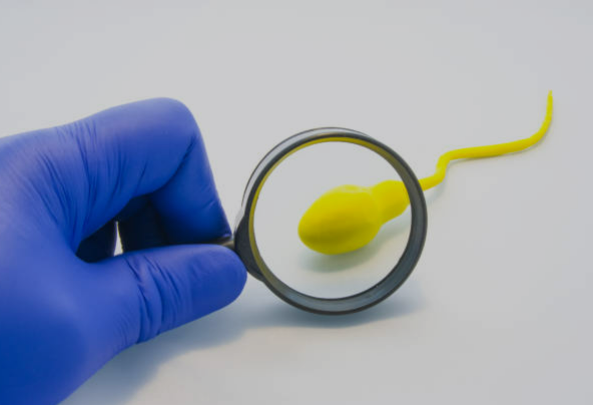Male Infertility: Symptoms, Diagnosis, and Treatments
WHAT IS INFERTILITY?
Infertility refers to the disorder in the male or female reproductive system that leads to the female being unable to achieve pregnancy after 12 months or more of regular unprotected sexual activity. Infertility, both female and male infertility, is one such problem that disturbs millions of people of reproductive age and affects their families.
You can also read about the symptoms and causes of female fertility.
WHAT IS MALE INFERTILITY?
As a male, your potency commonly depends on your sperm capacity and the quality of your sperm. If the sperm count when you ejaculate is low, or if the sperms are of inadequate quality, it will be impossible or in some cases, slightly difficult to get pregnant.
Male infertility is an eminent concern. For about 25% of infertile couples, the problem persists with the male partners. For about 35% of couples, the problem is observed in both partners. Therefore, male infertility contributes to almost half of the cases.
PREVAILING MALE FERTILITY PROBLEMS FACED BY MEN
One of the major male fertility problems faced by infertile men is a low sperm count and/or inadequate qualities of the ejaculated sperms. Other physical complications arise with men who underwent a vasectomy procedure in the past but now want to have children. Blockages or obstructions in the tubes are also one of the reasons for infertility in men that prevent men from ejaculating sperms.
A few other male fertility problems are mentioned below:
- Many times problems during sexual intercourse prevent semen from entering the vagina.
- Another one of the many male fertility problems includes hormonal imbalance. The pituitary gland produces low levels of hormones that might affect the testicles and sperm production.
- Presence of sperm antibodies in males, which are proteins that attack sperms. Although, in most cases, sperm antibodies do not hinder pregnancy, in some cases they are considered one of the major male fertility problems.
- Genetic causes are also one of the reasons for infertility in men, where chromosomal conditions affect the sperm condition.
COMMONLY OBSERVED MALE INFERTILITY SYMPTOMS AND MALE INFERTILITY CAUSES
One of the major and most prominent male infertility symptoms is the incapacity to conceive a baby even after trying for 12 months or more. Apart from this, a few other obvious male infertility symptoms and causes are as follows:
- Problems with sexual activities: One of the most common symptoms or reasons for infertility in men can be observed while sexual intercourse or masturbation. If the low volume of semen is ejaculated, or you experience a decreased sexual desire or struggle to maintain an erection or experience erectile dysfunction, then it may be one of the male infertility symptoms.
- Chromosome defects: Genetic disorders are common male infertility causes. One such chromosomal defect is Klinefelter’s syndrome. In this disorder, a male is born with one Y chromosome and two X chromosomes that lead to abnormal growth in the male reproductive organs.
Other genetic male infertility causes leading to male infertility include cystic fibrosis and Kallmann’s syndrome.
- Tumours: Non-malignant tumours like cancer are one of the major male infertility causes that affect the male reproductive organs directly, through the glands such as the pituitary glands that are responsible for releasing hormones for reproduction.
Other reasons for infertility in men include past surgeries, exposure to radiation or chemicals, or chemotherapy to cure tumours.
- Defects of tubules for sperm transportation: The sperm are carried through various tubules in the body. These tubules are open to many interior damages and can be blocked due to various causes like accidental injury from surgery, preceding infections, abnormal development, or traumas. Blockage due to accidental injuries can occur at any level leading to male infertility.
- Varicocele: A varicocele refers to the swelling of the veins that pump out the testicle. It is one of the most widespread male infertility symptoms that lead to reduced sperm quality and a low sperm count.
CAN MALE INFERTILITY BE TREATED?
Not all male infertility is inoperable or lasting and with the advancement of technology and availability of male infertility treatment, it is not surprising for men to deal with infertility and get their fertility back.
MALE INFERTILITY TREATMENT AND TESTS:
So, how can male infertility be treated? Finding the source of a man’s sterility is as much an art as a science and must be done by a professional with proper knowledge. Mentioned below are the male fertility test and male infertility treatment that you can consider if you suffer from male infertility:
- Sperm and semen analysis: This test helps in assessing your sperm count, and the shape, movement, and other variables of your sperm. This male fertility test proves that a higher number of normal-shaped sperm means a higher fertility rate and low sperm counts or inadequate quality of sperm can lead to infertility in men.
- Testicular biopsy: This male fertility test is performed for men who have a very low sperm count or no sperm in their semen. This biopsy is helpful as it shows whether a man is capable of producing healthy sperm. If ample good-quality sperm are found in the testis, there’s a probable blockage in the tubules that can be cured.
- Physical examination: A detailed and careful physical exam helps identify varicocele and gives an insight into various hormonal problems that might arise. This male infertility treatment should preferably be executed by a urologist under proper conditions.
- Genetic testing: Genetic testing is a type of male infertility treatment that helps recognize certain problems that act as fertility barriers and other problems with sperm. It also helps to evaluate if the infertility is hereditary or due to some medical conditions.
- Lifestyle changes: One of the most important treatments to cure male infertility is to consume a healthy diet and maintain healthy body weight. Avoid smoking, drinking, or consuming drugs and other illicit stuff as they hinder sperm count and the quality of the sperm produced.
Suffering from infertility issues doesn’t mean it can not be cured. If you are still wondering “Can male infertility be treated?”, then remember, with the advancement of technology, there are endless treatment opportunities available that can increase your chances to conceive.
And if you want to get treated for infertility from experts in the health sector, contact the best fertility clinic in Liverpool.


